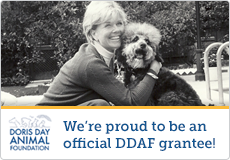|
By LAURéN ABDEL-RAZZAQ Nanci Shay can’t sleep at night because the sound of feral cats that have moved into her neighbor’s garage keeps her awake. The Pontiac resident said she has been dealing with the cats for three years, and the problem has compounded. Shay says the cats are fed by her neighbors but do not receive any other care and most are sick with viruses and highly contagious feline leukemia. “You can’t just feed them and walk away,” said Shay, who no longer allows her pet cats outside since they have picked up viruses from the strays. “Some are sick and some are going to get sick and they are dying.” Although she would love to care for the nine interlopers, Shay says she does not have the money for treatment and cannot catch the cats. “Animal Control in Pontiac does not have a contract with Oakland County to pick up cats,” said Pam Porteous, founder of Animal Care Network, a Pontiac-based organization. “It’s not the county’s fault — there is just no contract between the two agencies.” With just 10 volunteers on staff, Animal Care Network is the only group in Pontiac that will take in the numerous cats roaming the city, even though many weren’t feral to begin with. “Right now, with the economy as it is, people are moving and leaving the cats behind,” Porteous said. “A lot of the cats that are out there are not wild. At one time, they were people’s pets.” Porteous might take the captured strays to Oakland County Animal Control or another local shelter depending on their health and space available, but the feral cats are put down. Linda Wasche, who founded Nooters Club, an organization to raise funds for feline sterilizations runs a feral cat neutering and spaying program from her house in Sylvan Lake and knows all about dealing with the cat problem. “Even if they show the slightest hint of an upper respiratory infection, if a shelter took them in they would be immediately euthanized.” She acknowledges that overpopulation is a huge problem, especially because nobody can pay for the cats to get the treatment they need. Even though there isn’t much to help the feral cats of Pontiac, Wasche said, the problem serves as a lesson in prevention for animal owners. The Oakland Pet Adoption Center, in collaboration with the Michigan Humane Society and the Michigan Pet Fund Alliance — which institutes programs to help with pet overpopulation — offers a monthly spay and neuter clinic for cats living with low-income families. For $20, a price at least $60 lower than the nearest low-income sterilization clinic and $130 less than at regular clinics, pet owners can help stop the rising number of strays. Owners can bring in cats older than 12 weeks. In addition to being spayed or neutered, they will receive rabies and distemper shots, a nail clipping and flea medication, said Scott Zabel, the volunteer coordinator at the Oakland County Animal Shelter. Sgt. Joanie Toole, an administrative supervisor with the Oakland County Animal Control, said 2,400 cats have been through the program. “If you took those 2,400 cats we did and times it by at least three, which is a low estimate, we have saved almost 7,300 kitties from being born,” Toole said. Wache agrees that the sterilization clinic is the best answer to the cat problem for now. “People need to see, No. 1, the resources are available and, No. 2, this works,” Wasche said. “What the county does is clearly having an impact.” FYI For dates and more information about the Oakland County spay/neuter clinic call (248) 391-6283. In addition to low-cost sterilizations, the Michigan Humane Society has launched the Certifi ed Pre-Owned Cats program. Adoption fees for cats four months and up will be waived in hopes of driving up adoption numbers of older cats and reducing the overwhelming number of sheltered felines. The cost to adopt kittens younger than 4 months is $100.
|
Michigan Animal Adoption Network
501(c) 3 non-profit dedicated to animal care, rescue and adoption in Metro Detroit




